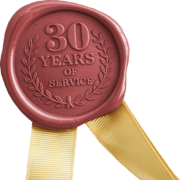10 Steps to successful CRM implementation
Introduction
Implementing a CRM system is an important strategic activity for businesses looking to improve customer relationships and increase overall efficiency. To ensure the success of your CRM implementation though, it’s important to structure how you approach the task. By following the steps below, you can ensure that your CRM system is tailored to meet the specific needs of your business and drive meaningful results.
- Define clear goals and objectives: Before implementing a CRM system, establish clear goals and objectives that align with your overall business strategy. For example, a car dealership may set a goal to increase customer retention by 20% within the first year of CRM implementation.
- Choose the right solution: Choose a CRM solution that fits the unique needs of your business. A manufacturing company may prioritize automation and integration with other systems, while a service-based business may prioritize scalability and customization.
- Train your employees: Train your employees to use the CRM effectively, such as entering, managing, and analyzing customer data. A retail company may train their sales team on how to use the CRM system to track customer preferences and improve sales.
- Plan a data migration strategy: To ensure a smooth transition, plan and implement a data migration strategy for transferring all relevant customer information to the new CRM. For example, a financial services firm may plan to migrate all client data from their old system to the new CRM system over a period of 6 months, or less.
- Establish clear roles and responsibilities: Assign clear roles and responsibilities for CRM data management and ensure data is kept up-to-date. A marketing agency may assign a designated team member as the CRM administrator and set regular data review dates.
- Integrate with other systems: Integrate the CRM with other relevant tools and systems such as marketing automation software, to improve data flow and automate tasks. As an e-commerce store, it’s likely you’d want to integrate your CRM system with your email marketing platform to send personalized product recommendations to customers.
- Use data to improve: Use the CRM system to track and analyze customer interactions and feedback, and use this information to improve your products or services. A restaurant, for example, may use their CRM system to track customer feedback on menu items and make changes accordingly.
- Monitor and measure success: You can’t improve what you don’t measure. Monitor and the success of your CRM implementation and make adjustments as needed. A software company may track the number of leads generated through the CRM system and adjust their lead generation strategy accordingly.
- Continuously update and maintain: Continuously update and maintain the system to keep it running smoothly and ensure that it continues to meet the needs of your business. A consulting firm may set a schedule for regular system updates and backups to ensure data security.
- Continuously seek feedback from users: Continuously seeking feedback from users is an essential part of ensuring the ongoing success of your CRM implementation. It helps to identify areas where the system may not be meeting the needs of your users or where there may be issues that need to be addressed. A sales team may provide useful insights about how to improve logging of customer interactions.



